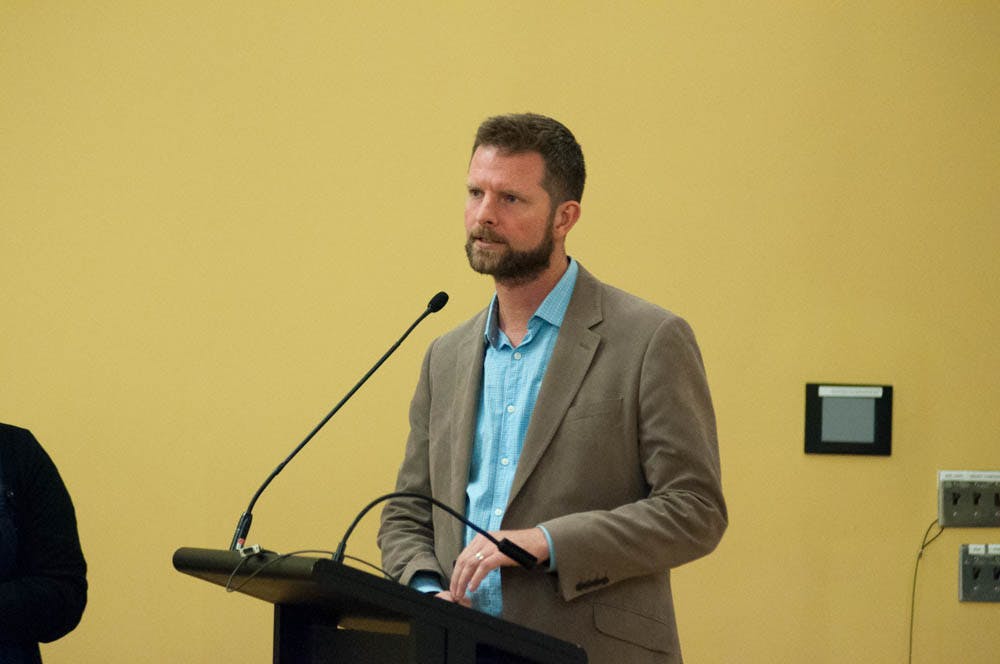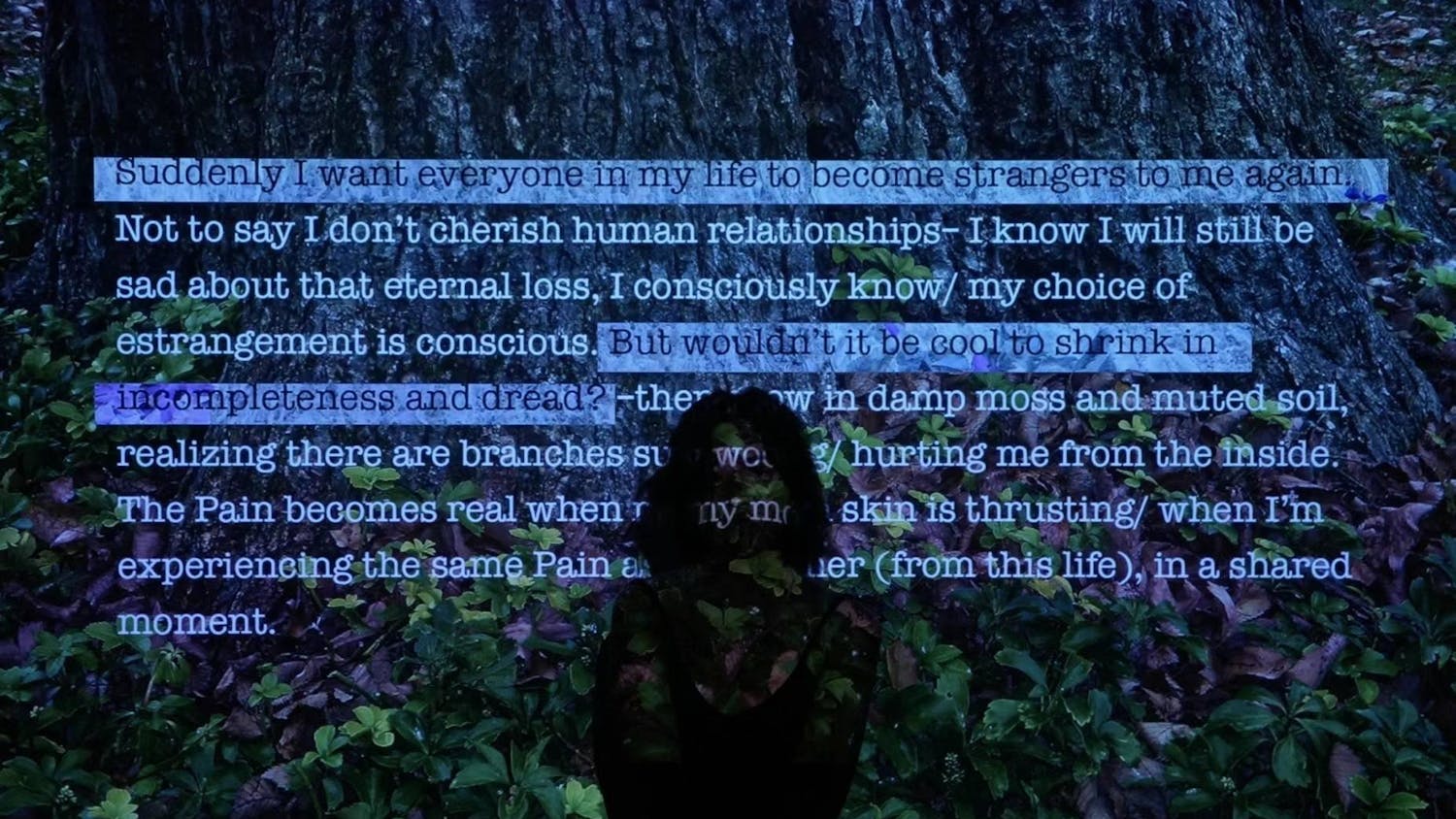In the first installment of its “Combating Crisis: New Responses to Cultural Heritage Preservation in the Middle East” series, the Joukowsky Institute for Archaeology hosted a screening of “The Destruction of Memory” Monday night in List Art Center.
Director Tim Slade’s documentary explores the destruction of world heritage sites. “The Destruction of Memory” traces a history that includes cultural extermination in the Armenian Genocide, carpet-bombing in World War II’s European Theatre and targeted attacks of landmarks by the regime of Syrian President Bashar al-Assad and ISIS.
Equal parts piercing and poignant, the film provides a dynamic opening episode for Joukowsky’s “Combating Crisis” series. Emily Booker GS and Kathryn McBride GS, the students responsible for developing “Combating Crisis,” chose to focus the series on cultural heritage following their research on the Levant region. “The main goal with our whole ‘Combating Crisis’ events series is to have a year-long dialogue about these issues,” Booker said, adding that the series attempts to “not just present people’s research on these issues, but actually consider them in more critical ways.”
A healthy audience arrived at List Art Center to enjoy the series’ opening salvo. A veteran filmmaker whose work includes the award-winning documentary “4,” Slade explained the impetus for his work in a pre-screening introduction. “I read Robert Bevan’s book, ‘The Destruction of Memory,’ and was struck by this issue of cultural heritage,” Slade said. “Robert’s book opened my eyes to the systematic nature of this problem and that this film shouldn’t just be about the current destruction going on at the hands of ISIS.”
Slade wastes little time in revealing his film’s political purpose. Indeed, it opens with dramatic flair as the Smithsonian’s Cultural Heritage Preservation Officer Corine Wegener declares: “The dead are dead, but without our culture, we can’t keep on living.” Wegener’s words set the documentary’s urgent tone, as Slade’s talking heads doggedly recite the persistent and recurrent narrative of cultural heritage site destruction beginning in the early 20th century.
The history lesson could easily descend into a laborious affair if not for Slade’s steady hand. The Australian director keeps his documentary bouncing at a jaunty pace without minimizing the emotional impact of images and footage of cultural genocide, which come in waves and consistently land gut punches.
“The Destruction of Memory” proves quite moving in certain moments. In one vignette, Slade recounts the destruction of the Stari Most bridge in Bosnia during the Balkan Wars in the 1990s. Woven in between images of the bridge pre- and post-bombing, the voice of the narrator recites a passage from Croatian writer Slavenka Drakulic’s eulogy of the cultural site, reading: “We expect people to die. … The destruction of the monument of civilization is something else. The bridge in all its beauty and grace was meant to outlive us. It was an attempt to grasp eternity.”
Drakulic’s words serve as a kind of epodic thesis for Slade’s film. At its heart, the act of destroying cultural heritage sites — from the atrocities committed by Djemal Pasha to Hitler to Assad — is an attempt to erase the physical traces of a people’s history. As many of Slade’s commentators argue, and convincingly so, cultural genocide often precedes ethnic cleansing and should thus be treated as an equal crime. In the film’s final moments, Slade advocates a hardening of international legal codes to prevent militaries from operating with carte blanche in their targeting of cultural heritage sites.
“Combating Crisis” will include future lectures from Army Archaeologist Laurie Rush and Oxford’s Neil Brodie as well as a full-day workshop event in April.





